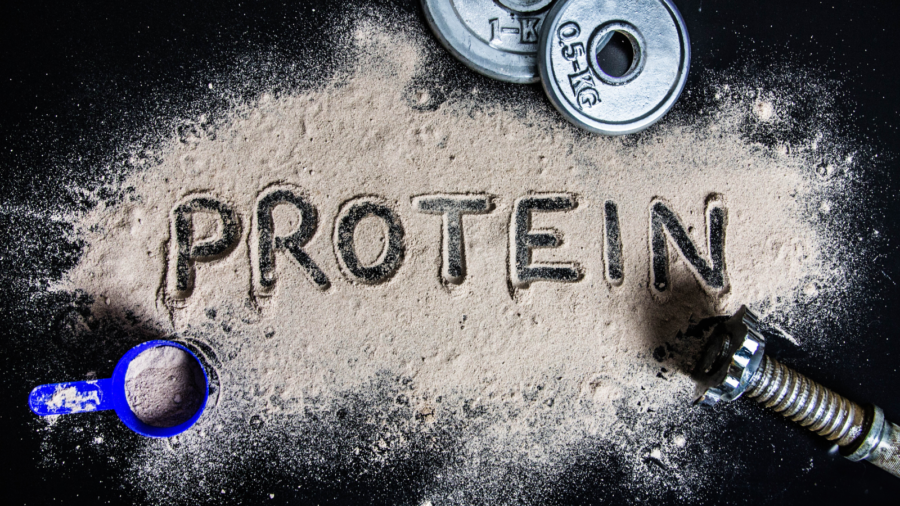Protein
Protein is an essential macronutrient vital for sustaining life. They are large complex molecules made up of chains of smaller unit called amino acid. These amino acid are bonded together in specific sequence forming long chain. There are 20 different amino acid that combined in various ways to create a wide array of protein with diverse structure and function. Protein also plays a variety of critical rules in biological processes. As protein provide a structural support to cell tissues and organs. Many protein also act as enzymes which are biological catalyst that passiolet and regulate chemical changes in our body. It also involves in the process of digestion metabolism as well as DNA replication. Some protein serve as hormone which are signaling molecules that regulate various physiological processes. Insulin is a protein hormone that regulate blood sugar level while growth hormone influence body development. Protein or also involved in a transport of substance such as oxygen and lipid as it as a storage deports for nutrient such as iron and amino acid. Antibodies which are specialised protein produced by immune system plays a crucial role in identifying and neutralizing hormone pathogens such as bacterias and viruses. As protein are found in wide varieties of food including both animals and plant sources. Animal based protein source include meat, eggs , dairy products which are considered complete protein because they contain all the nine essential amino acid in adequate amount.
Mean while plant based protein source include legumes, nut, soy product Protein or diverse molecules with wide range of functions in living organs as proteins act as enzymes which are biological catalyst that speed up chemical reaction in cell. Even protein provide a structural support to cell tissues and organs. Protein also faciliate the transport of molecules and ions across cell membrane and through of the body. Protein also place a crucial role in the immune system by recognising and neutralizing foreign invaders such as virus in bacteria. Certain protein serves as hormones which are chemical messengers that regulate various physiological processes. They also participate in cell signal in Pathways transmitting signal from the cell surface to the nucleus and regulating gene expression cell growth and differentiation. Some protein act as buffers helping to maintain the pH balance of body fluid and preventing sudden change in acidity.
We can obtain protein through many sources. Meat, lamb source of protein. They also provide essential nutrient like iron and vitamin B. Turkey duck and other poultry options are excellent source of lean protein and species like salmon tona or seafood including shrimp and trout are not only high in protein but also rich in omega 3 fatty acid.eggs are complete source of protein containing all the nine essential amino acid.Dairy product including cow milk as well as alternative like goat milk and sheeps milk is a great source of protein calcium and vitamin D. Cheese varieties such as mozzarella and cottage cheese provide protein along with calcium and other nutrient. Plant based protein sources such as been lentil and fees are excellent source of plant based protein fibres and various vitamins and minerals. Almond, walnut, chia seed and flaxseed are also protein rich snacks that provide healthy fats and macronutrients. Whey protein ,soyprotein and pea protein powders are convenient option for boosting protein intake particularly for athletes and those with increase protein need. Even protein bars are portable snack that provide a quick and convenient source of protein which is often combined with carbohydrate and fats for energy.

Routine requirement very depending on factor such as age ,sex, body weight muscle mass ,physical activity level and health status. The RDA (recommended dietary allowence)For protein is set as 0.8 gram of protein per kilogram of body weight per day for healthy adult. Athletes and individual engaged in regular vigorous physical activities may need higher protein requirement to support muscle repair, growth and recovery.The protein needed for an athlete can range from 1.2 to 2.2 grams per kilogram of body weight per day depending on the type intensity and duration of exercises. Older adults may have higher protein requirements you to age-related changes in muscle mass and protein metabolism. They may consume 1.0 to 1.5 grams of protein per kilogram of body weight per day to help preserve muscle mass and function. Certain health conditions such as injuries surgery burns or chronic disease may increase protein requirement due to bodies increased need for tissue repair and healing in such cases helical professionals may recommend higher protein intake to support recovery and overall health. It is important to obtain protein from various sources as part of a balanced diet that includes a diverse array of nutrients.
Along with advantages and disadvantages, there are many metres related to protein. “MORE PROTEIN MEANS MORE MUSCLE” While protein is essential for muscle-repairing growth consumers’ excessive amounts want to necessarily lead to more muscle mass. They will be simply stored as fat or used for energy. “ALL PROTEIN SOURCES ARE EQUAL” Not all protein sources are equal in terms of quality and nutrient content. Animal-based proteins such as meat, poultry, fish, eggs and dairy products are considered complete proteins because they contain all essential amino acids in adequate proportion while plant protein may be incomplete and may require combining different sources to ensure all essential amino acids. “PLANT PROTEIN ARE INFERIOR TO ANIMAL PROTEIN” When some plant proteins may be lower in essential amino acids they can still provide adequat protein intake when consumed as part of a balanced diet. “PROTEIN CAUSES KIDNEY DAMAGE” There is a common misconception that consuming a high amount of protein contamisdic kidney however, research indicates that in healthy individuals with normal kidney functioning high protein diet does not pose or risk of kidney damage. “PROTEIN SUPPLEMENT AND NECESSARY FOR EVERYONE” While protein supplements such as powders and bars can be convenient options for athletes and individuals with increased protein needs they are not necessary for everyone. By debunking these myths and understanding the role of protein in diet individual can make an informed decision about their dietary choices.
Ongoing research continues to uncover the role of protein in health and disease including their impact on metabolic health aging and chronic conditions like diabetes and cardiovascular disease. Emerging technology such as cellular agriculture and preseason nutrients hold from is for advancing sustainable protein production and personalized dietary recommendations.
Protein serves as the backbone of countless physiological processes. As research in the field progresses comprehension of protein’s role in human health will undoubtedly depend on paving the way for more target nutrient strategies and improving public health outcomes.





[…] array of responsibilities with grace and precision. Yet, fueled by love and devotion for her family, she approaches each challenge with unwavering […]
Thank you for taking the time to leave a review. We appreciate your feedback.